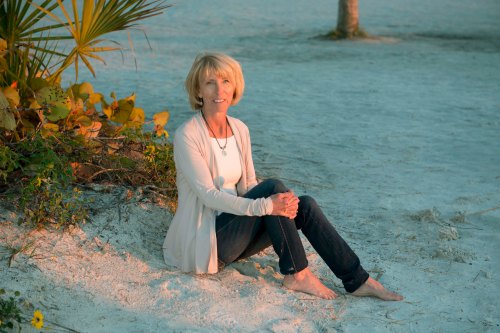Q: I’ve been wondering, just what IS ‘authentic voice’ in writing, and how do I find mine?
A: Great questions! There aren’t quick or easy answers, but it’s important to explore this topic, because I believe that our most powerful writing comes from a place of authentic voice.
First, let’s see if we can define authentic voice, in the context of creative writing.
Here is a beautifully concise and clear explanation from a website created for ESL teachers called Learn English (http://www.english-for-students.com/):
“Good writing should have an Authentic Voice. When you read first–rate writing, you feel the presence of the writer. The writer’s character and sense of self permeate the writing and project authenticity. This writer, you think, knows what he’s talking about and means what he says; you feel that only this particular writer could have written that particular piece – it is stamped with his personality. You are drawn in to this writer’s world and engage with it.”
That’s a tall order. So, let’s move on to how a writer might find, discover, unearth his or her own authentic voice.
My go-to tool for this sort of work is a daily journal. Like many people, I journal first thing in the morning, when it’s easier to connect to the unconscious state I just left behind in dreams. My preferred method is free association, in which I begin with a random thought arising in my sleepy brain as I awakened; a sensory-based description of the surroundings in which I am writing the pages this morning; an interior exploration of what I am feeling at the moment; a reflection on an aspect of living life which seems important to me right now; and so on. Sometimes, I’ve written “I don’t have anything to say” for a half page, in so many words, and let it flow from that. I’ve committed the time and the paper sheets to this pursuit, so no matter what, I must go on. The point with such journaling is to let yourself write two or three pages each day without censoring yourself, and without trying to accomplish any mission. It’s a way to get mental muscle memory for the writing process. It’s how to overcome a fear of a blank page. It’s a path toward your authentic voice. And that can be the most important benefit of the journaling practice: it leads you to your authentic self, the speaker of your authentic voice.
If you keep doing those daily journal pages for a time, and I hope you do, you can look back on them to ferret out key clues to finding your authentic voice: frequent themes come up inevitably, and that tells you what sort of topics and characters you might express most fully and authentically in future creative projects. You will inevitably and naturally develop a way of expressing your thoughts in words through allowing yourself to write without expectation of publication or editorial criticism. Your authentic voice will rise up in your free writing exercises, in all its glory.
It will take time for your natural writing rhythm, patterns, and viewpoints to be revealed to you, but it will happen…and when it does, give yourself permission to use your authentic voice in the ALL your writing, even that which you do for publication. It will be the mark that helps make your manuscripts strong, unique stand-outs in the literary crowd.
One last thought: here is how to NOT find your authentic voice. When you consciously try to replicate the style and the structure of another writer’s work only because it proved commercially successful, and you hope it will prove an easy sale. Unless you are a ghost writer, this copy-cat approach isn’t likely to bring success financially or artistically. It’s far more likely to hamstring your own creativity and will delay the discovery of what makes you unique, special, and authentic as a writer.
Wishing you happy—and authentic—writing!
DIANNE’S BIO:
Dianne Ochiltree is a nationally recognized author of books for the very young. Her books have appeared on numerous recommended reading lists, classroom desks and library shelves. Her bedtime book, LULL-A-BYE, LITTLE ONE, was a selected for the Dollywood Foundation’s childhood literacy initiative, Imagination Library in 2007. Her picture book, MOLLY BY GOLLY! THE LEGEND OF MOLLY WILLIAMS AMERICA’S FIRST FEMALE FIREFIGHTER, received the Florida Book Awards (FBA) Bronze Medal in the Children’s Literature category in 2012 and was chosen for the ALA’s Amelia Bloomer list of feminist literature for girls. Her picture book, IT’S A FIREFLY NIGHT, won the FBA Silver Medal in 2013. Her 2015 title, IT’S A SEASHELL DAY, was given the FBA Gold Medal/Gwen Reichert Award as well as the Gold Medal for Florida picture book from the Florida Authors and Publishers Association. For more information about Dianne’s books, go to http://www.dianneochiltree.com.
Dianne, thanks for sharing your expertise with us. Another great article.
REMEMBER: To send in your questions for Dianne. Use Kathy(dot)Temean(at)gmail.com. Please put ASK DIANNE in the subject box.
Talk tomorrow,
Kathy

Leave a comment